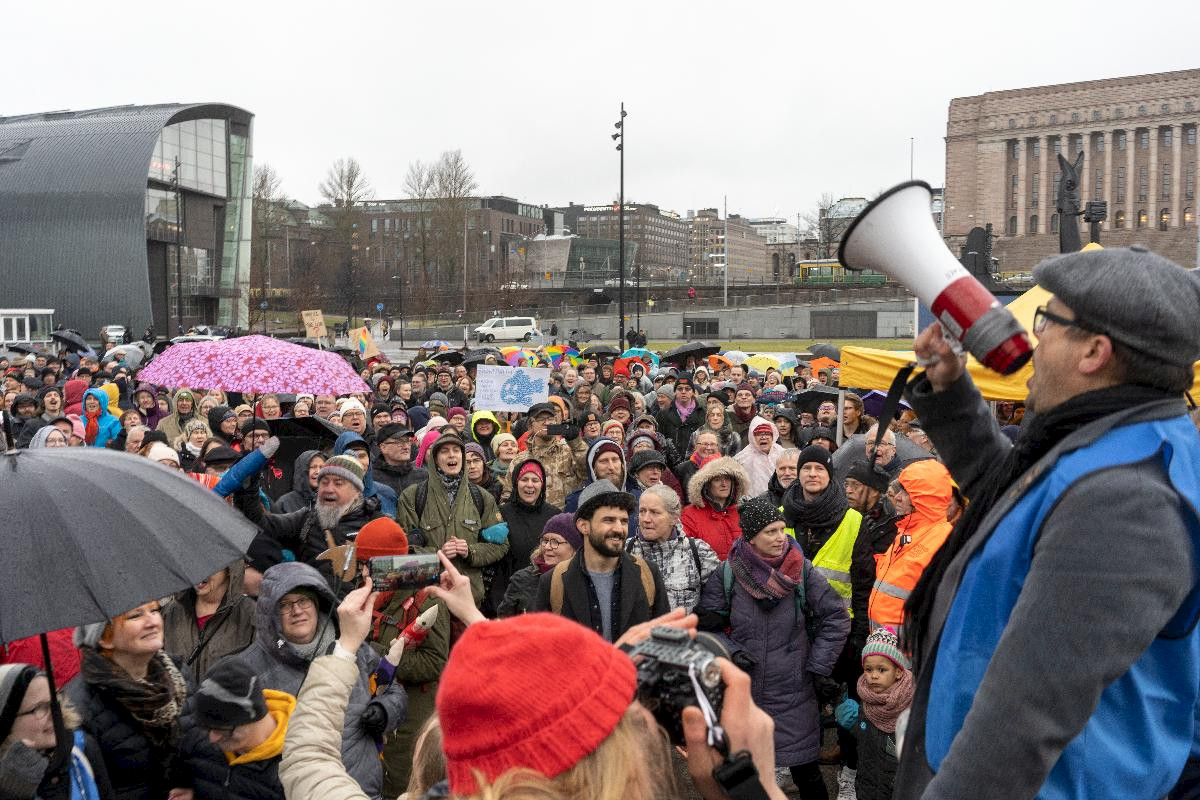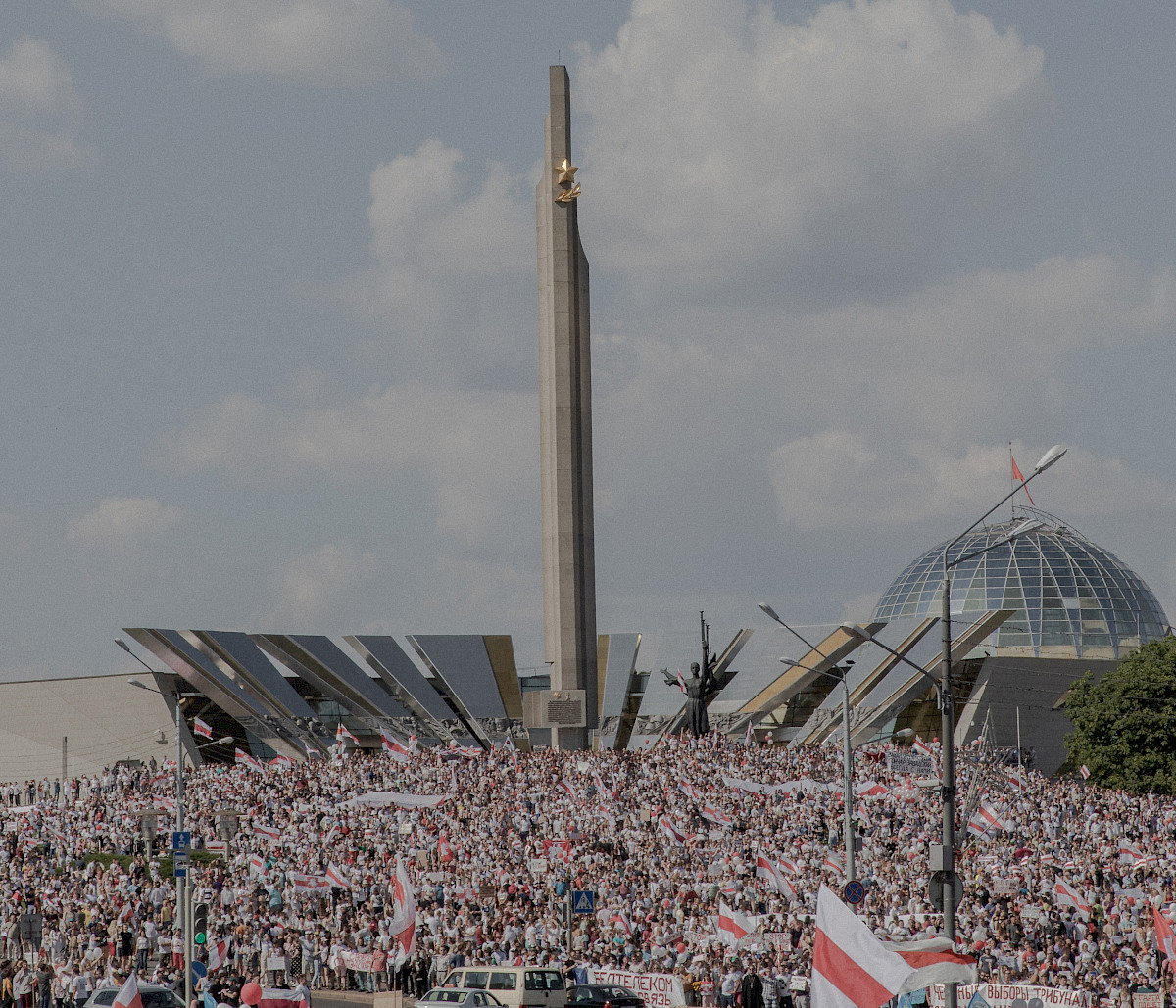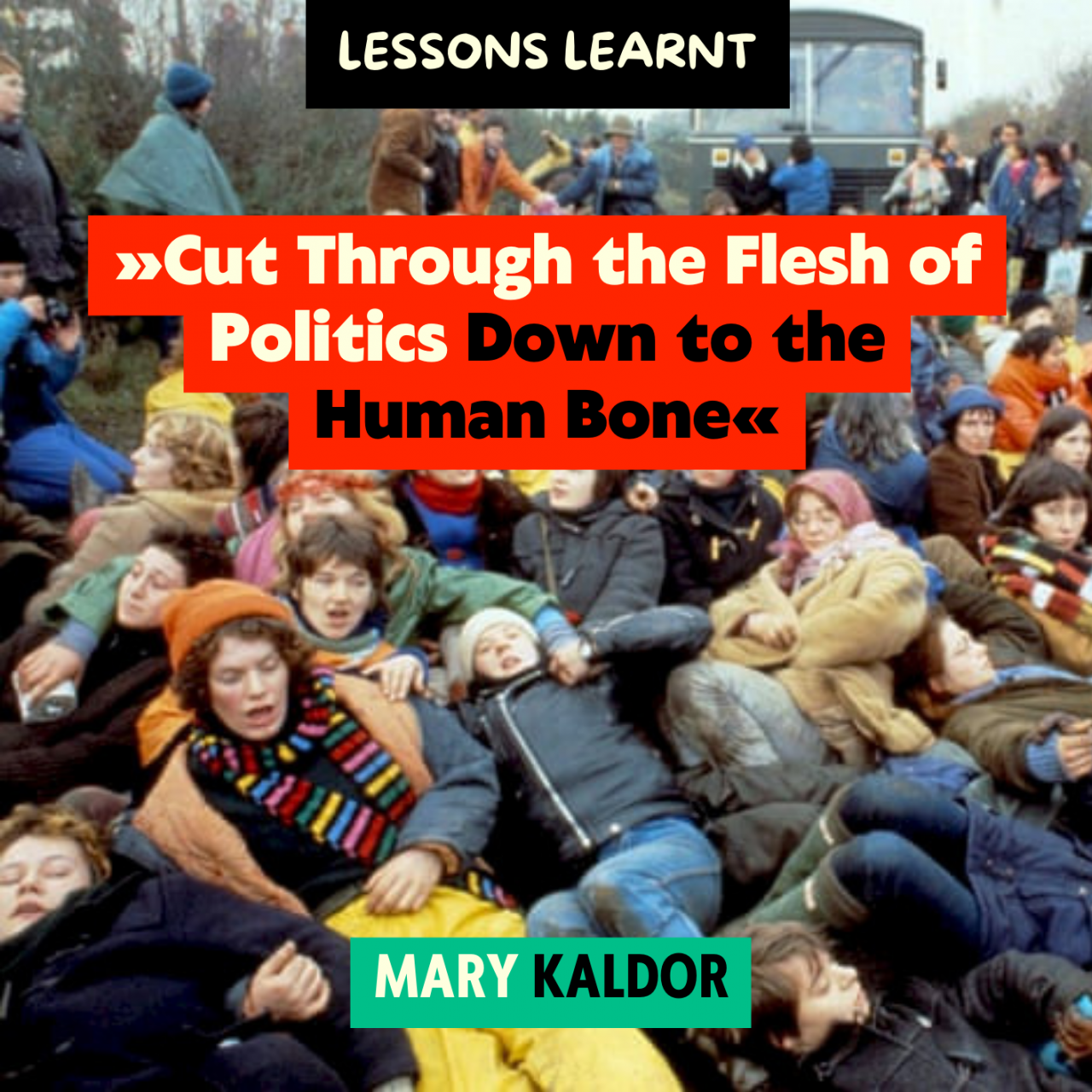
Among many unexpected developments of the year 2020, on 24 May Belarusians began their peaceful struggle for electoral freedom, and they have not stopped since. In some sense, they surprised themselves in the last several months by transforming from a society which had come to terms with political stagnation into a nation which is proud of its activism, self-organization and mutual aid.
These actions have been extended beyond the borders of their country. Faced with increasing and unremitting terror inside Belarus, activists from neighbouring countries are assuming an ever-larger responsibility – whether it is because Belarusian activists are being pushed out of their own land, or the conditions for activism in Belarus have deteriorated because of state violence.
„Peremen!” − We want changes!
On the surface, nothing foreshadowed such a turn of events. In recent years, the subject of activism for the Belarusian cause had been losing traction, with other challenges coming to the foreground. In addition, due to cultural reasons, the Belarusian diaspora was not as active or united as some others tend to be.
The revolution began several months before the presidential election. However, from its very outbreak, it expressed societal changes and a worldview shift rather than any particular politics. The first wave of the pandemic was disastrous for Belarus, and Lukashenko’s denialism clearly demonstrated to Belarusians that they could not count on their state to take action. Out of necessity rather than any political belief, people started self-organizing against the pandemic. They created crowdfunding campaigns, activated micro-communities in their neighbourhoods, and often agreed beforehand not to discuss politics in order to avoid conflict among the organizers. It was then that they understood they were a nation of people who were capable to function well on their own, and the system hindered them rather than helped.
2020’s revolution changed everything, including the engagement of political forces in neighbouring countries, and even the mentality of the Belarusians themselves. The current radical transformation has brought about a wide range of new challenges for activists as well as once again unearthed ones from the past. They include: helping for a new wave of refugees, monitoring human rights violations, putting pressure on politicians despite the pandemic and regional governments’ authoritarian tendencies, and advocating abroad in spite of information chaos and a language barrier. Moreover, activists must overcome organizational problems, such as effective coordination or burnout.
State terror, human rights violations and accountability
Today, daily life in Belarus is comparable to 1930s Soviet Union or Nazi Germany. During the first four months of protests, nearly thirty thousand people have been arrested, with most brutally beaten or even tortured. Clearly, one urgent problem in Belarus is the lack of the rule of law and the impunity of the armed forces. These officers actively wreak terror in the country and commit crimes which bear the characteristics of crime against humanity. The Belarusian people are being repressed for peaceful protests. Protesters were labelled with spray paint and divided into categories. If they use the Belarusian language or the historical white-red-white flag, they are being beaten with greater force.
Because the corrupt judicial system refuses to hold state officers accountable for their actions, this is a major task for non-governmental organizations. It includes identifying the perpetrators, verifying victims’ reports, and finally creating databases which would allow lawyers to ultimately take thousands of these cases to court. Currently, the legal system in Belarus is simply not working, which means that these steps need to be taken elsewhere: whether by imposing international sanctions, or by international court proceedings. This is a great challenge for human rights lawyers as the nature of these cases makes it difficult to act from abroad.
The first months of 2021 have shown that despite loud declarations, few countries decided to prosecute the perpetrators in courts. Some of them were added to sanction lists, but the number is far from satisfactory. The struggle for “justice here and now” continues for Belarusians and activists.
Lukashenko’s totalitarian methods have been increasingly effective in obstructing justice. Threats of imprisonment and violence as well as repressions against families are pushing an ever-larger number of activists out of the country. And once they have left Belarus, in addition to workaholism for the sake of the revolution, they are confronted with a new set of challenges: getting their bearings in an unfamiliar and unfriendly environment governed by its own rules. Many have a hard time adapting to a “reality of two speeds.” Whereas everything needs to be done today or “yesterday” in revolution-torn Belarus, organizations operate on a business-as-usual basis in the relatively peaceful neighbouring countries. Many Belarusian activists find it difficult to cope with this, because the matters of life and death they are dealing with do not seem as urgent to local institutions.
In practice, local activists often bear the brunt of these intercultural misunderstandings. They are suspended between a feeling of guilt for having avoided the trauma of violence experienced by their colleagues on site in Belarus, and the intense expectation to provide effective help, which is not only imposed on them not only by others, but also by themselves.




